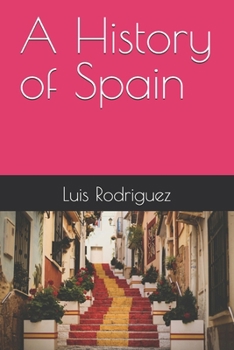A History of Spain
From the sun-drenched shores of the Mediterranean to the rugged peaks of the Pyrenees, the story of Spain is a vibrant and turbulent tapestry woven from countless threads of conquest, culture, and conflict. This comprehensive history takes you on a journey through the millennia, beginning with the peninsula's earliest inhabitants and the mysterious cave art of Altamira. It chronicles the arrival of the great ancient powers-Phoenicians, Greeks, and Carthaginians-before delving into the two-century-long Roman conquest that forged the province of Hispania, leaving an indelible legacy of language, law, and engineering that endures to this day. The narrative then navigates the fractured era of the Visigothic Kingdom, a Christian realm whose internal strife paved the way for one of the most transformative invasions in European history.
In 711, a new chapter began as Arab and Berber forces crossed the Strait of Gibraltar, swiftly conquering the peninsula and establishing the sophisticated Islamic civilization of Al-Andalus. For seven centuries, this land stood as a beacon of learning and art, with cities like C rdoba becoming dazzling centers of science and philosophy while much of Europe languished. From the northern mountains, however, small Christian kingdoms began the slow, grinding struggle that would define medieval Spain: the Reconquista. This account details the complex clash and coexistence of three cultures, tracing the rise of kingdoms like Castile and Aragon, the fragmentation of Al-Andalus into the Taifa states, and the interventions of the formidable Almoravid and Almohad dynasties from North Africa.
The narrative culminates in the pivotal year of 1492, when the Catholic Monarchs, Isabella and Ferdinand, completed the Reconquista by conquering Granada and, in the same year, sponsored the voyage of Christopher Columbus. This dual event catapulted a newly unified Spain from a regional power to the center of the world's first global empire. The subsequent chapters explore the immense wealth and power of Spain's Golden Age, the sprawling Habsburg empire under Charles V and Philip II, and the cultural flourishing that produced figures like Cervantes and Vel zquez. It also examines the contradictions of this era, from the religious fervor of the Inquisition to the long, painful decline fueled by constant European wars and economic mismanagement.
Bringing the story into the modern era, this history navigates the relentless turmoil of the 19th century, marked by the Napoleonic invasion and the brutal Carlist Wars between liberals and absolutists. It explores the 20th century's dramatic swings, from the hopeful democratic experiment of the Second Republic to the national trauma of the Spanish Civil War and the nearly four-decade-long dictatorship of Francisco Franco. The final chapters chart Spain's remarkable and peaceful transition to democracy after Franco's death, its integration into Europe, and the profound social and economic transformations that followed-from the heady boom years to the devastating financial crisis and the contemporary challenges of regional nationalism, political fragmentation, and navigating a complex globalized world.
Related Subjects
History




